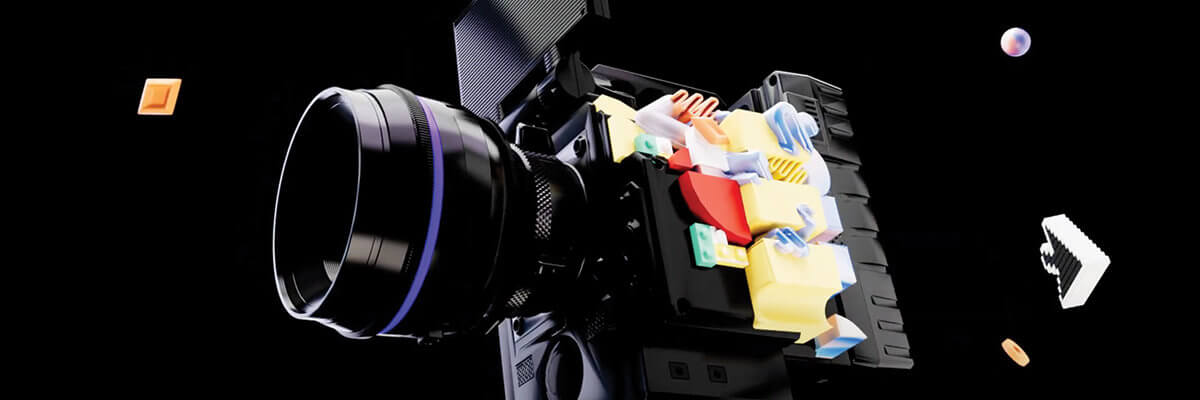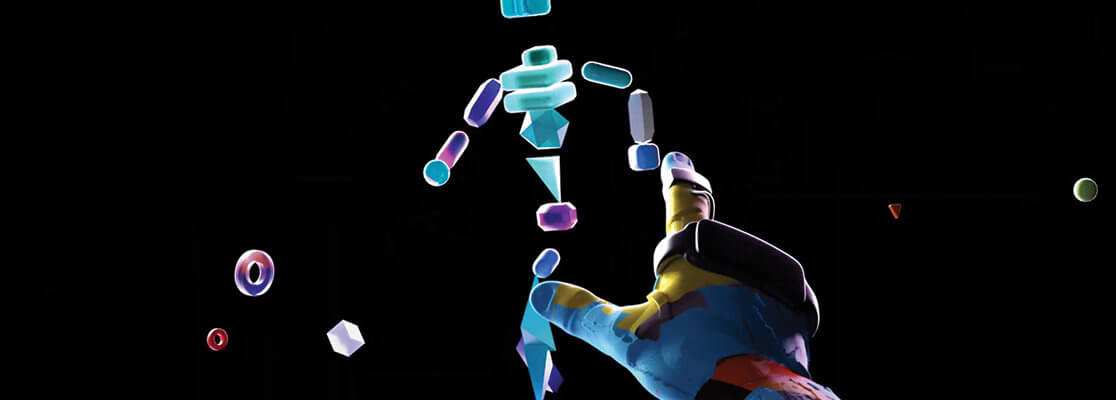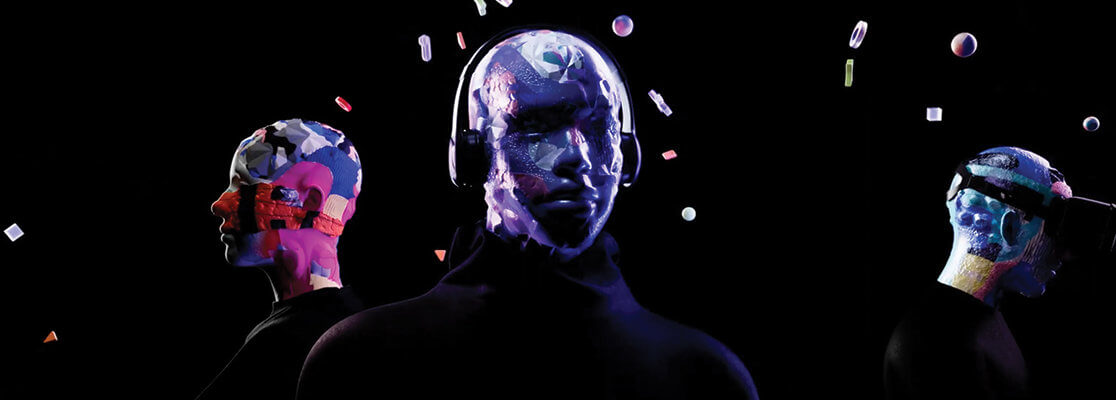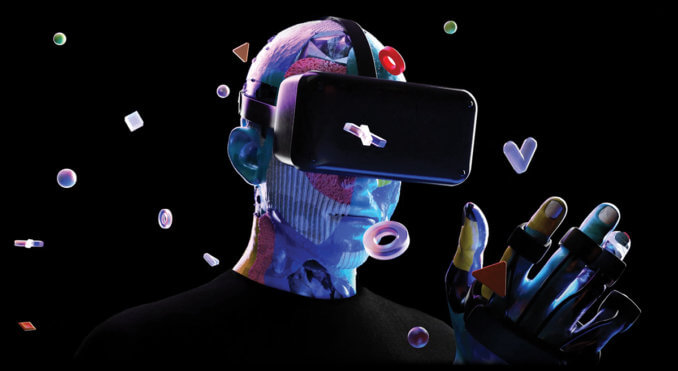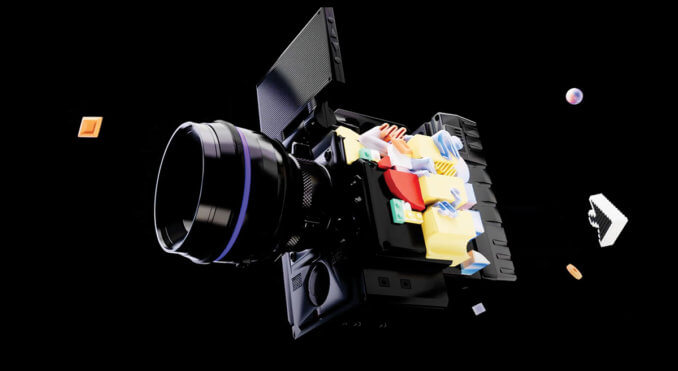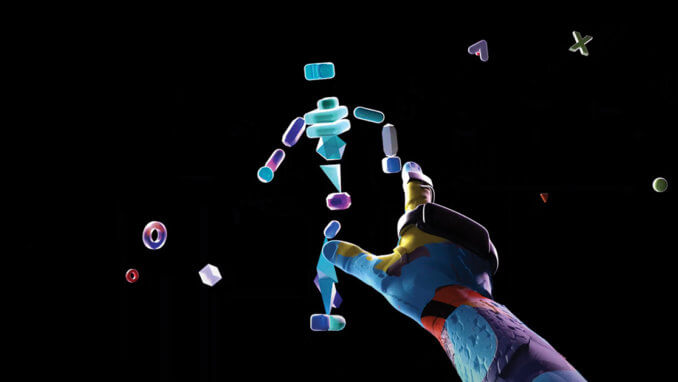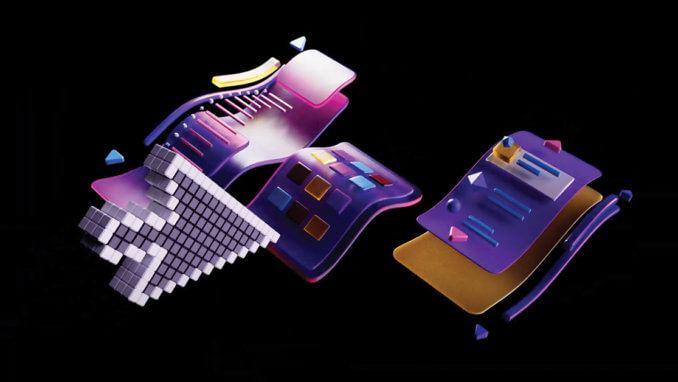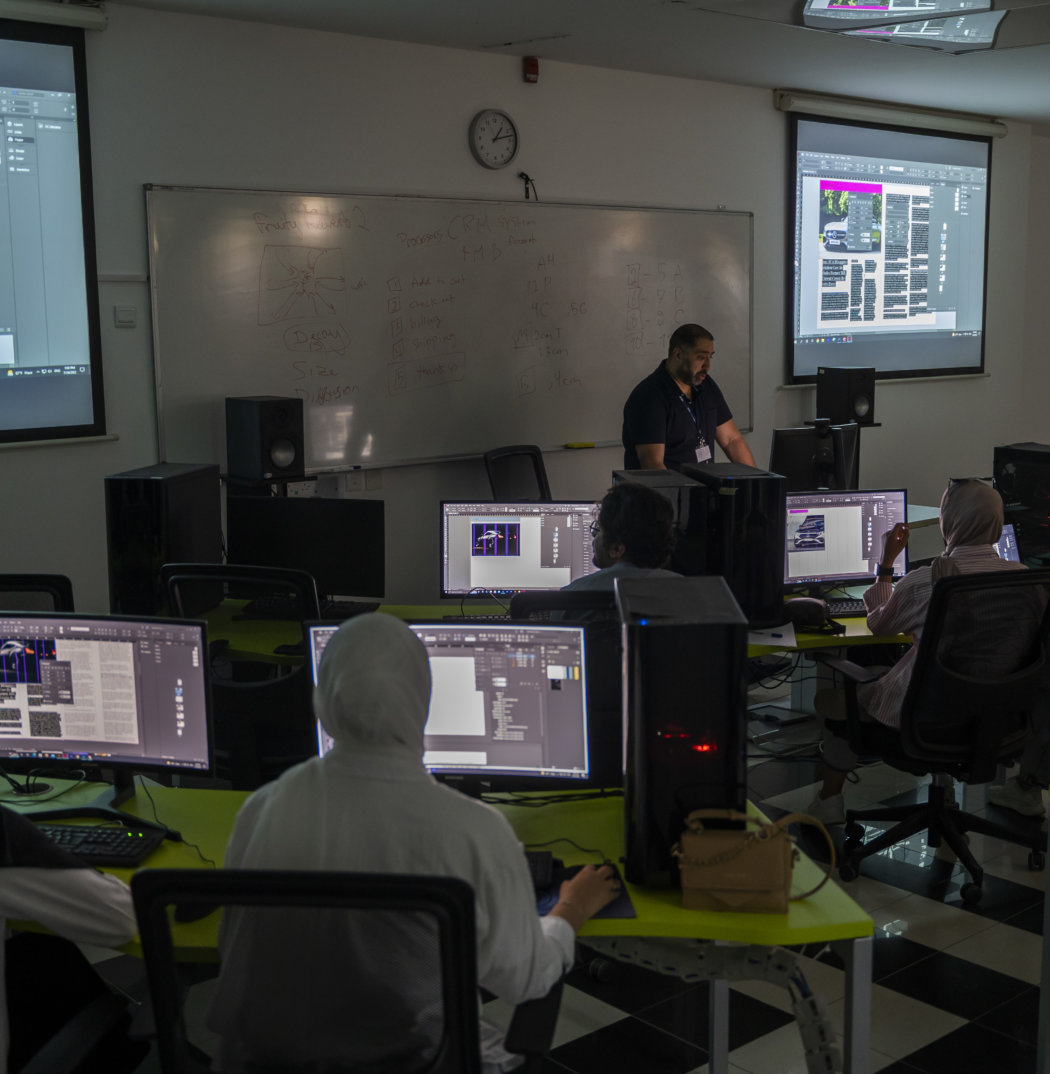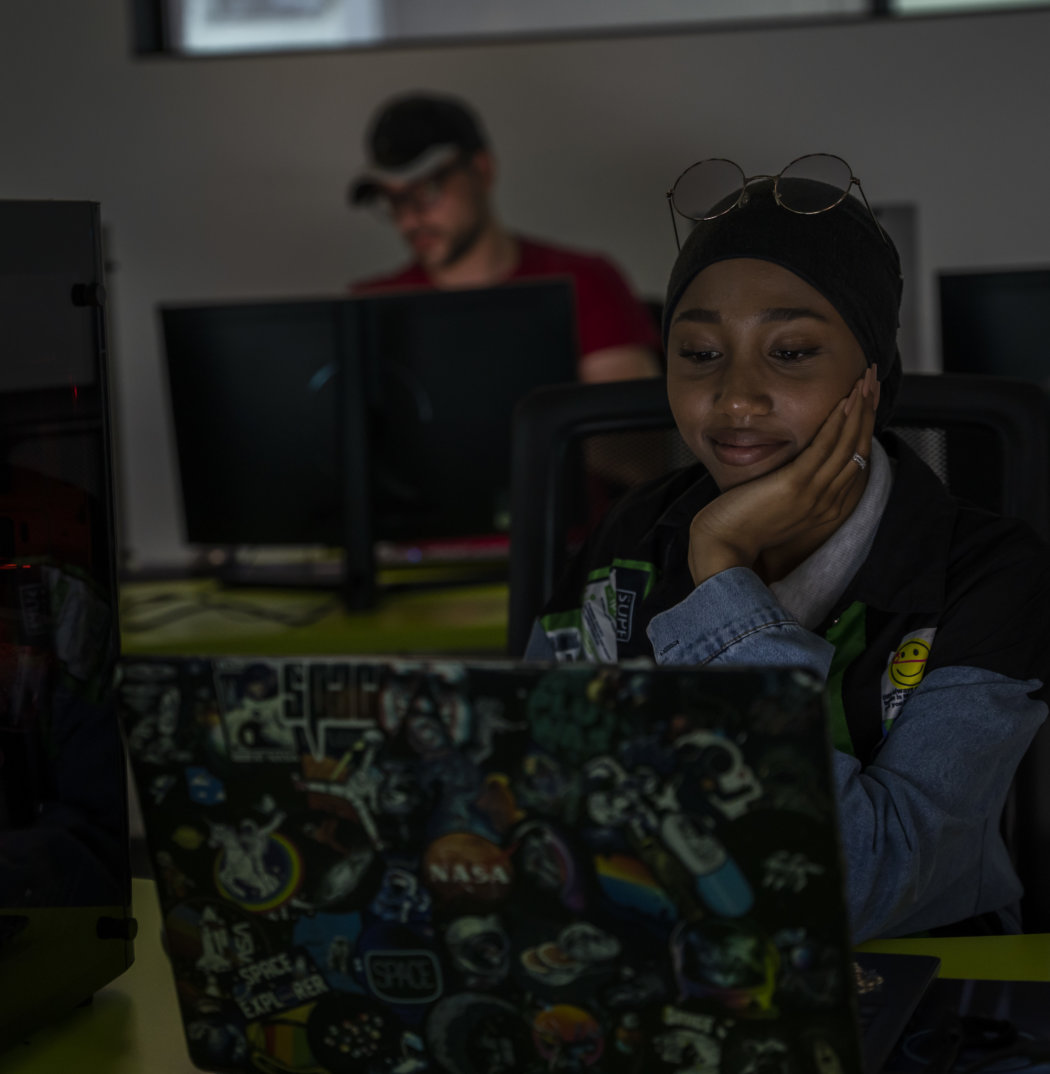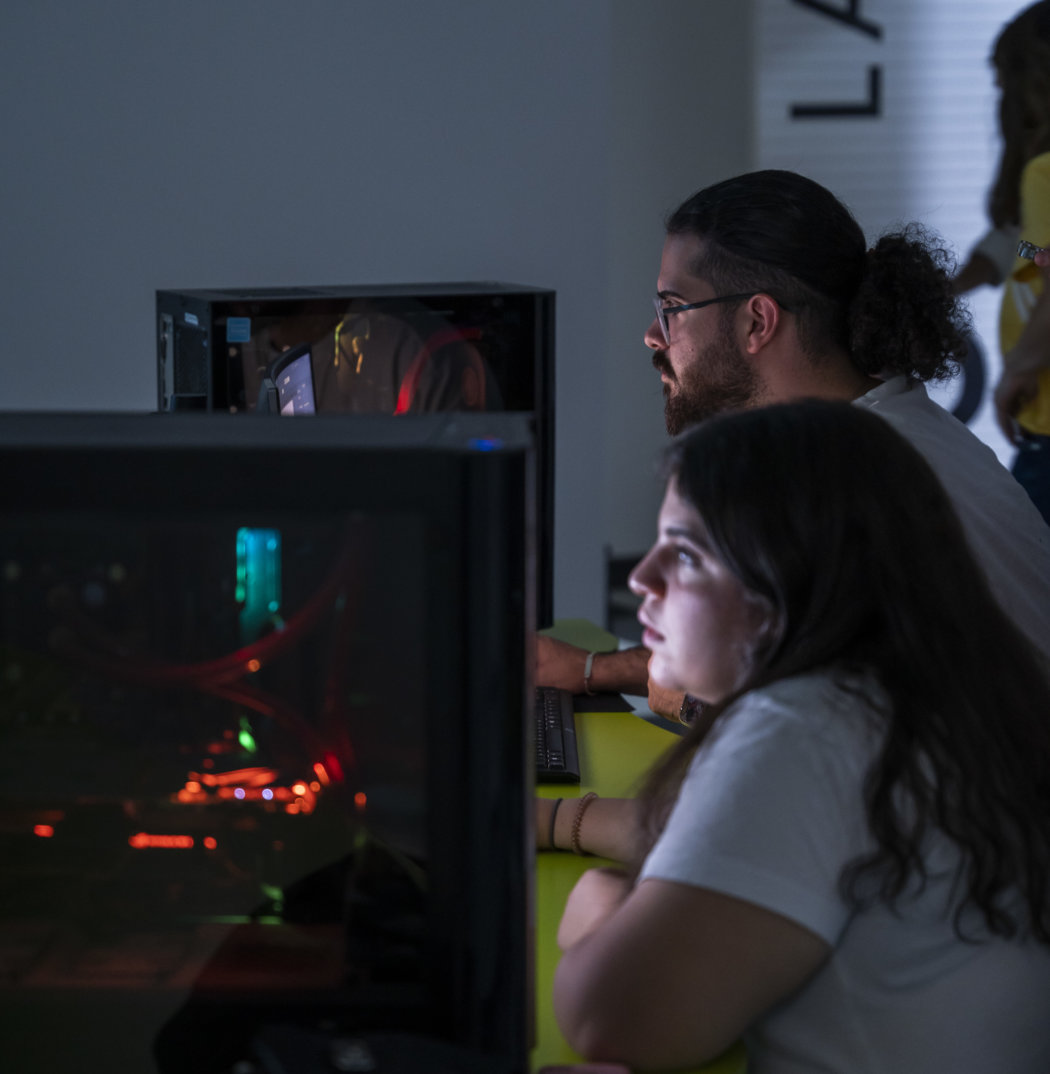Training Diploma in Game Design & Development
START YOUR CAREER AHEAD OF THE GAME
Available at
Amman
Duration(s)
6 Trimesters Full Time
Complete your training degree in 2 years with a total of 6 trimesters.
Training Diploma in Game Design & Development
Course Durations
6 Trimesters Full Time
Complete your training degree in 2 years with a total of 6 trimesters.
Start Date(s)
Amman
22 October 2023
3 March 2024
Training Diploma in Game Design & Development
Start Dates
Amman
22 October 2023
3 March 2024
Entry Requirements
YOUR CAREER IN GAMES BEGINS NOW
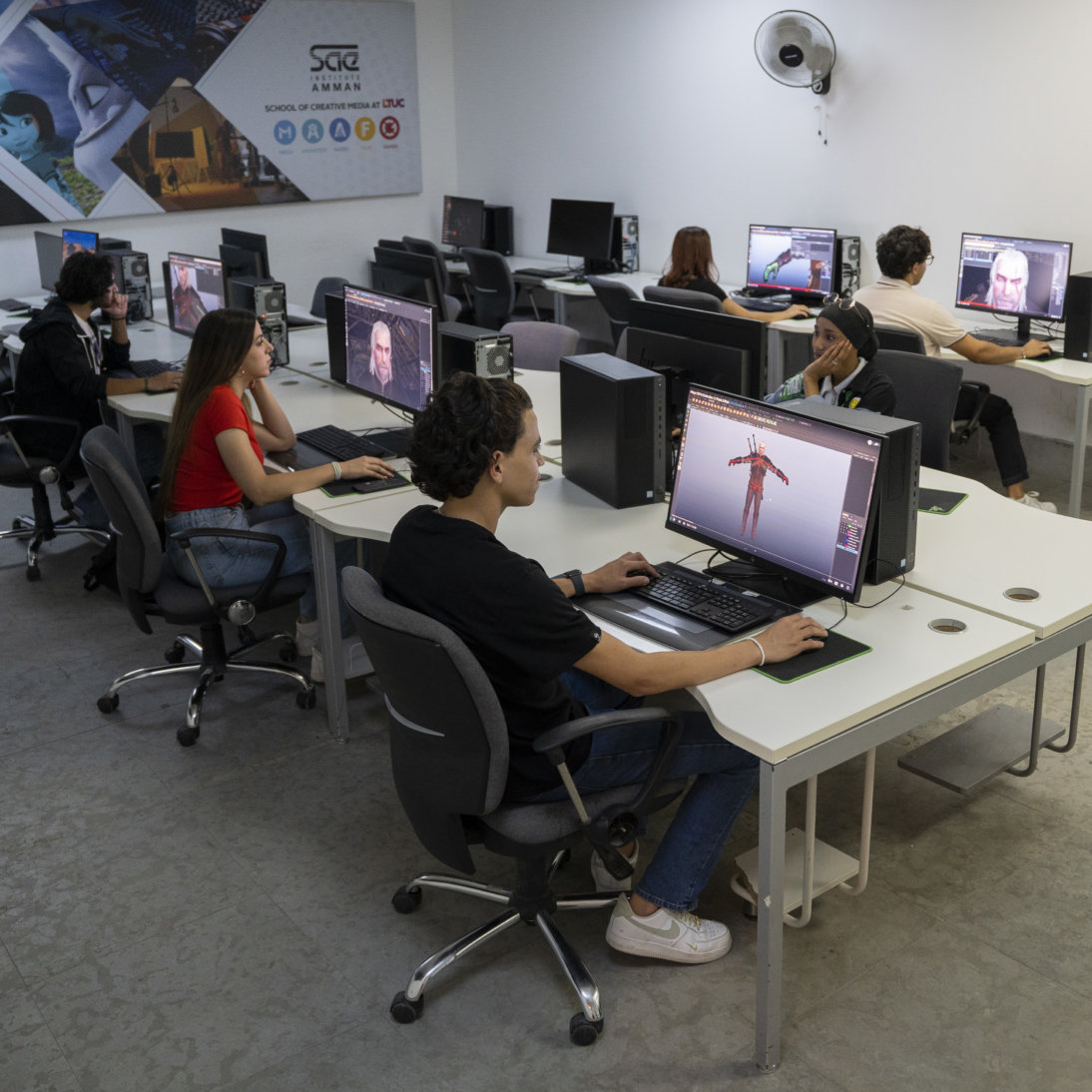
Develop advanced skills in industry-standard software packages
Unreal Engine 4, Unity3D, and Autodesk Maya.
Practical, immersive training
All work is project-based, with no exams. Graduate with a portfolio to share with an employer or first client.
Cross discipline collaboration
Work across film, audio, and animation projects at SAE.
Expand your career
Graduate with a portfolio, work experience, employability and entrepreneurial skills, and a network of fellow creatives.
Games Development Skills
Gameplay programming
3D Character & Environment Creation
Game engine programming
Level design
Game design
3D Animation
Artificial Intelligence
Python programming language
C++ programming language
Unreal & Unity game engines
Game engine programming
Game mechanics & dynamics
Tools development
Course Structure
Semester 1:
English Language Skills
In this module, students will learn about the basic elements of Film production such as directing and editing, to produce a short video that they will direct and edit and present upon completion of the module.
In this module students will be introduced to the audio engineering industry. They will be familiarized with its various fields and sub-fields, to the industry structuring and functionality in general, as well as the types of personnel operating in the industry. Students will also be introduced to audio engineering studio equipment and software in a broad overview, and will be familiarized with the general ideas of audio production methods.
This course illustrates methods of using pencils and colors and other materials in addition to learn how to draw shapes taking into consideration ratios using different representations and displaying methods for the texture and symbolic values of shapes, ores and surfaces.
In this course students will engage in hands-on design practices, develop creative thinking strategies, and devise solutions to design challenges. The course familiarizes students with principles, essential software, and techniques that serve the basic designer needs. Students will also develop fluency in the principles of design to form a basis of aesthetic judgment and develop methods of analysis and inquiry for creative thinking.
This is a communication skills course, which aims at improving learners’ oral and written communication skills by providing learners with the language needed to naturally and confidently communicate in an English-speaking workplace environment and real-life situations.
Semester 2:
This module develops your critical understanding of games. Beyond technical and craft skills, expert
practitioners also have an understanding of the historical and cultural context of games. Through
developing your ability to research, analyse, argue, present, write, and cite games theory, you will become
a more literate creative. This knowledge and these skills can be applied in industry and research settings,
to benefit your projects and company.
practitioners also have an understanding of the historical and cultural context of games. Through
developing your ability to research, analyse, argue, present, write, and cite games theory, you will become
a more literate creative. This knowledge and these skills can be applied in industry and research settings,
to benefit your projects and company.
Game scripting is a common method of controlling the behaviour and sequencing of events and
interactions within a game or scenario. Scripting can be thought of as a discrete language that uses
principles of mathematics, combined with rules of syntax and patterns, to provide instructions for a
computer to follow. In order for a game's design to move from an idea on paper to an experience that a
player can interact with in a video game, we must be able to translate our design into a language that a
computer can execute. We also want the instructions contained within this language to be consistent,
accurate and effective, and we must possess an understanding of the mathematics that drive a computer,
so that we can best utilise them.
In this module, you will implement a range of basic game functionality by utilising data manipulation,
formulas, object creation, defining of behaviours, and working with event systems. You will also build an
awareness of how to use these elements within common game scripting languages and environments.
interactions within a game or scenario. Scripting can be thought of as a discrete language that uses
principles of mathematics, combined with rules of syntax and patterns, to provide instructions for a
computer to follow. In order for a game's design to move from an idea on paper to an experience that a
player can interact with in a video game, we must be able to translate our design into a language that a
computer can execute. We also want the instructions contained within this language to be consistent,
accurate and effective, and we must possess an understanding of the mathematics that drive a computer,
so that we can best utilise them.
In this module, you will implement a range of basic game functionality by utilising data manipulation,
formulas, object creation, defining of behaviours, and working with event systems. You will also build an
awareness of how to use these elements within common game scripting languages and environments.
In order to design and create games we need to be able to understand game systems and how they
generate player experience. In this module you will break down existing games to identify and describe
core elements and interactions of games.
generate player experience. In this module you will break down existing games to identify and describe
core elements and interactions of games.
This module aims to develop and enhance the key employability skills of SAE students by focusing on the needs of both employees and employers within the global creative industries. A range of topics which help bridge the gap between tertiary study and the workplace have been chosen to prepare you for the future of employment. These topics include transferable skills, professional communication strategies, knowledge of the creative industries from a professional sense and the mechanism and means to promote yourself. These topics are constantly reviewed and informed by the SAE Industry Advisory Council to ensure graduates are equipped for success.
Games are inherently an audio visual medium. They require a range of both artistic talents and assets to bring them to life. In this module, you will work within existing asset development pipelines and tools. You will create and edit audio assets for use within existing gameplay scenarios to reinforce and communicate information to the player. You will create basic 2D pixel and vector based assets, such as sprites and particles. Finally you will create basic 3D assets such as block outs of gameplay spaces, environmental elements and props.
Semester 3:
The students will engage with mathematical principles to inform and justify game design choices. This will involve both manipulating existing games and prototyping original game concepts and systems to generate player experiences.
Disruption within creative media industries occurs regularly and changes the way the industries operate.
Disruption displaces an existing technology, platform, genre, process, person, market or industry. This is
both a creative and destructive process, creating a new direction. This module aims to develop your
understanding of the creative media industries by examining the creative industries of the past and
present and by anticipating the future and your place within it.
In order to develop a career within the creative media industries you will need to prepare for the effects of
ongoing disruption. The key to maintaining this career is developing hard and soft skills, refining current
skills sets and anticipating future changes in required skill sets. You will need to understand how the
audience informs and influences the production and distribution of creative media products and how this
in turn affects the skills required to succeed within the creative media industries. By completing this
module you will be effectively equipped to work with disruption, and to survive and flourish in disruptive
environments.
Disruption displaces an existing technology, platform, genre, process, person, market or industry. This is
both a creative and destructive process, creating a new direction. This module aims to develop your
understanding of the creative media industries by examining the creative industries of the past and
present and by anticipating the future and your place within it.
In order to develop a career within the creative media industries you will need to prepare for the effects of
ongoing disruption. The key to maintaining this career is developing hard and soft skills, refining current
skills sets and anticipating future changes in required skill sets. You will need to understand how the
audience informs and influences the production and distribution of creative media products and how this
in turn affects the skills required to succeed within the creative media industries. By completing this
module you will be effectively equipped to work with disruption, and to survive and flourish in disruptive
environments.
Computer Graphics
Semester 4:
Introduction to Object Oriented Programming in Java
Advanced 3D Modeling
Artificial Intelligence
Environment and Level Design
Semester 5:
As our daily lives are transformed by digital media and networked public spaces, new individual and
collaborative skills are emerging that are best described as digital literacies. This module will introduce
you to attitudes and tools necessary for critical consumption of information, best practices of individual
digital participation and collective participatory culture, and the use of collaborative media and
methodologies. Contrasting perspectives are offered in the readings and explored through classroom
and online discussion. Key questions surrounding common models that describe the structure and
function of media texts and your own role as a practitioner will be addressed. In support of this
exploration, you will use a range of media theoretical approaches to guide the production of a range of
media texts which will unpack, engage with and critique the assumptions of your chosen medium
through collaborative work.
collaborative skills are emerging that are best described as digital literacies. This module will introduce
you to attitudes and tools necessary for critical consumption of information, best practices of individual
digital participation and collective participatory culture, and the use of collaborative media and
methodologies. Contrasting perspectives are offered in the readings and explored through classroom
and online discussion. Key questions surrounding common models that describe the structure and
function of media texts and your own role as a practitioner will be addressed. In support of this
exploration, you will use a range of media theoretical approaches to guide the production of a range of
media texts which will unpack, engage with and critique the assumptions of your chosen medium
through collaborative work.
Game Production 1
Game Production 2
Game Production 3
Software Development with C#
Semester 6:
Data structure and Algorithms
Principles of User Experience and User Interface Design
Principles of Animation
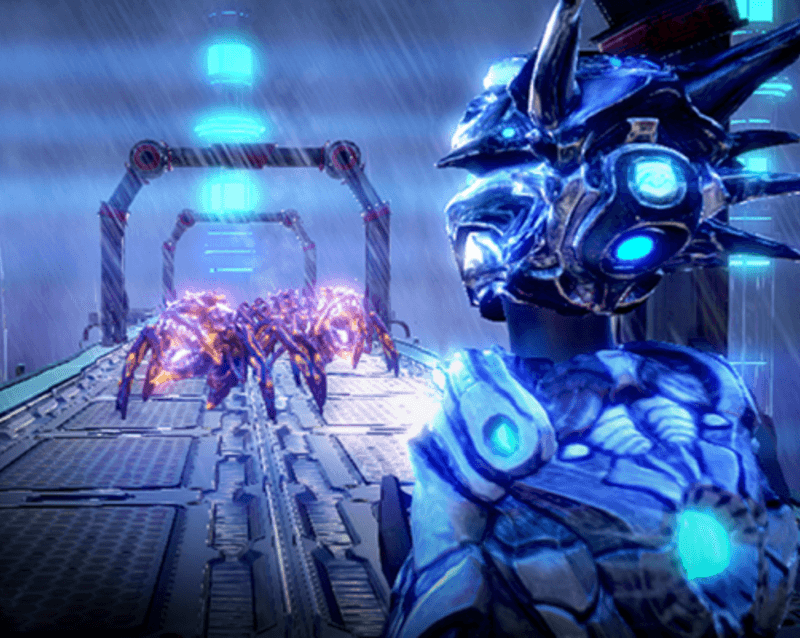
Career Outcomes
What jobs will this course lead to?
- Game Designer/Developer
- Game Economy Designer
- Level Designer
- Simulation Specialists
- Community Manager
- Visual Effects Artist
- Graphics Programmer
- Animator
- Game Programmer
- 3D Artist
- Games Writer
- Game Technical Director
Course FAQs
All SAE courses focus on practical, hands-on delivery. The amount of practical time you experience during your study varies depending on your course. You will always have an opportunity to access campus resources and facilities outside of class times; during campus opening hours.
It can vary depending on the course. In most cases, lectures have an average of 15 students.
It’s a study requirement that students have their laptops (for after-school study). The laptop specifications and features can be sent to your email when requested.




